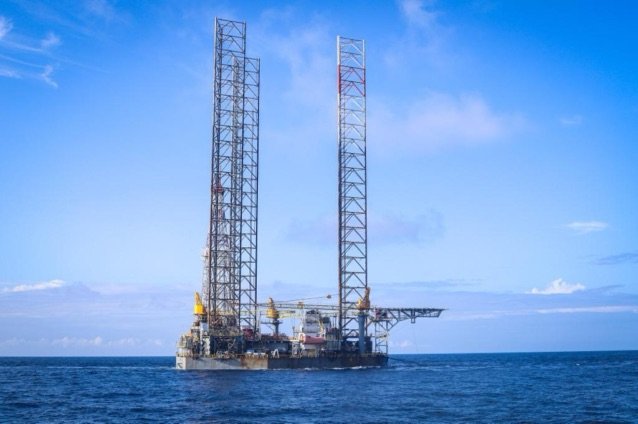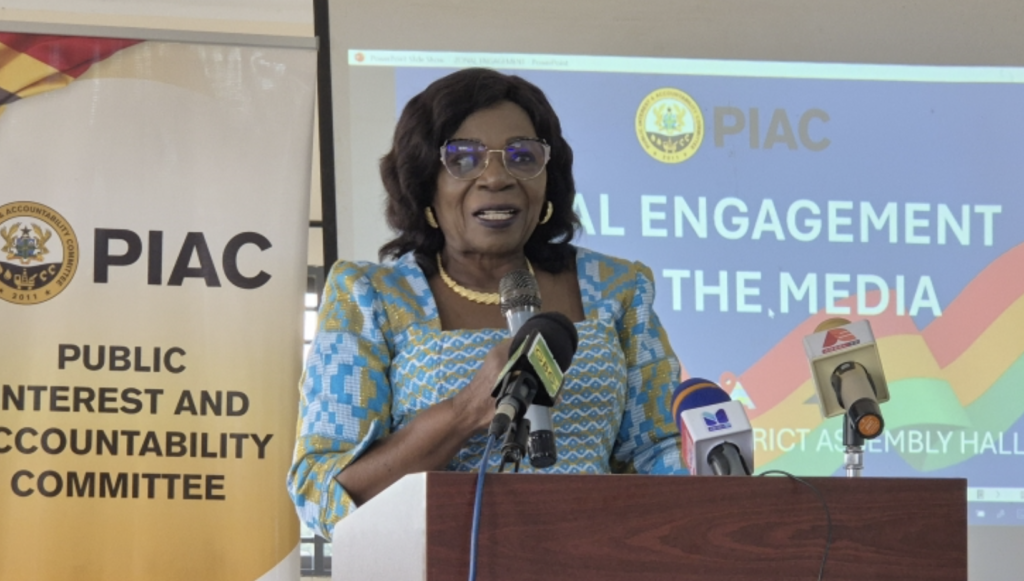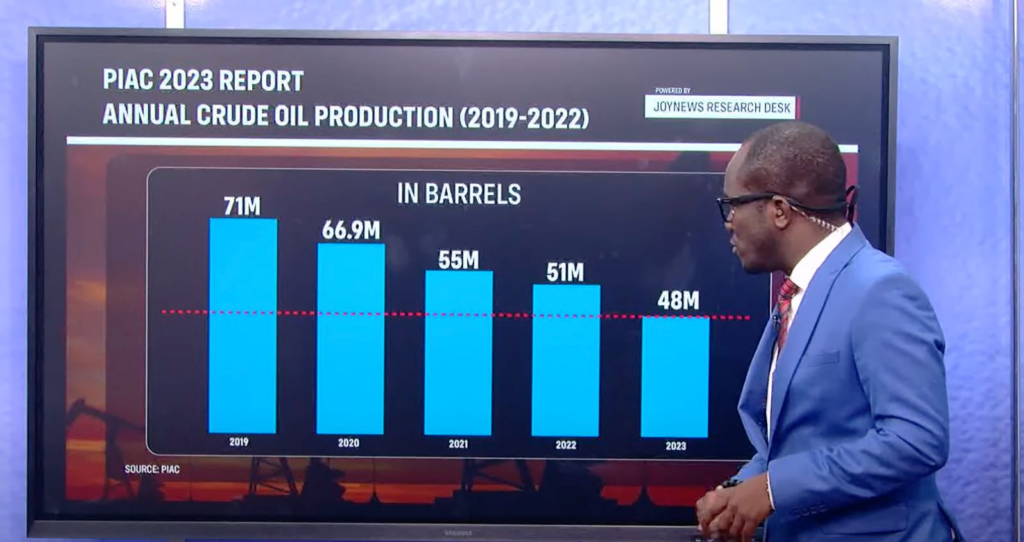Crude oil production declined for fourth consecutive year in 2023 - PIAC

Ghana’s crude oil production has experienced a continued decline for the fourth consecutive year in 2023, according to the Public Interest and Accountability Committee (PIAC). Emerita Professor Elizabeth Ardayfio-Schandorf, Chairperson of PIAC, highlighted this during a stakeholder engagement in Ningo-Prampram, Greater Accra Region. The report revealed that production dropped from a peak of 71.44 million barrels in 2019 to 48.25 million barrels in 2023, marking an annual average decline of 9.2%.

Presenting PIAC’s 2023 annual report, Emerita Prof. Ardayfio-Schandorf emphasized the committee’s recommendation for the government and relevant regulatory bodies to take urgent action to reverse the production decline in existing crude oil fields and to ensure investments in untapped fields. The 2023 Annual Report, the 25th published by PIAC, covers the period from January to December 2023 and aims to provide the public with comprehensive information on the management and utilization of petroleum revenues.
In 2023, a total of 48,247,036.61 barrels of crude oil were produced from Ghana’s three major fields: Jubilee (30,444,217 barrels, 63%), Tweneboa-Enyenra-Ntomme (TEN) (6,716,278 barrels, 14%), and Sankofa Gye-Nyame (SGN) (11,086,541.61 barrels, 23%). For raw gas, a total of 255,171.97 million standard cubic feet (MMSCF) was produced, with the SGN Field contributing 50%, Jubilee 30%, and TEN Fields 20%.

The report highlighted that the average price achieved by the Ghana Group for crude oil from all three fields during the period was $78.067 per barrel. Total revenue paid into the Petroleum Holding Fund (PHF) in 2023 amounted to $1,062,323,419.12, reflecting a 25.65% decrease from 2022. Carried and Participating Interest (CAPI) remained the largest contributor to the PHF at 44.31%, followed by Corporate Income Tax (CIT) at 34.38% and Royalties at 20.67%.
PIAC also noted that proceeds from Jubilee Oil Holdings Limited (JOHL) liftings in 2023, amounting to $70,456,718.93, were not paid into the PHF for the second consecutive year. This brought the cumulative unpaid revenue from JOHL to $343,108,927.88 by the end of 2023. Emerita Prof. Ardayfio-Schandorf reiterated PIAC’s stance that these proceeds constitute petroleum revenues under the Petroleum Revenue Management Act (PRMA) and must be deposited into the PHF.

Regarding the allocation and utilization of petroleum revenue, the report detailed that the total receipts paid into the PHF were distributed as follows: $245,588,510.58 to the Ghana National Petroleum Corporation (GNPC), $485,971,963.64 to the Annual Budget Funding Amount (ABFA), and $330,579,098.26 to the Ghana Petroleum Funds (GPFs).
The report also touched on the selection of new priority areas for ABFA utilization from 2023 to 2025, following the expiration of the previous priority areas for 2020 to 2022. PIAC recommended that the selection of ABFA Priority Areas be guided by a long-term national development plan approved by Parliament, in line with the PRMA, to ensure sustainable and strategic use of petroleum revenues.






![Speaker Bagbin sacks Sefwi-Wiawso MP from the Chamber [WATCH VIDEO] 8 img 0856 2 1](https://whiteboxmediagh.com/wp-content/uploads/2024/07/img_0856-2-1-390x220.jpg)








